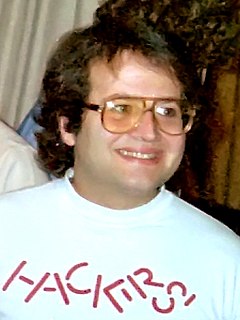A Quote by Plutarch
Whenever Alexander heard Philip had taken any town of importance, or won any signal victory, instead of rejoicing at it altogether, he would tell his companions that his father would anticipate everything, and leave him and them no opportunities of performing great and illustrious actions.
Related Quotes
Each day brought just another minute of the things they could not leave behind. Jane Barrington sitting on the train coming back to Leningrad from Moscow, holding on to her son, knowing she had failed him, crying for Alexander, wanting another drink, and Harold, in his prison cell, crying for Alexander, and Yuri Stepanov on his stomach in the mud in Finland, crying for Alexander, and Dasha in the truck, on the Ladoga ice, crying for Alexander, and Tatiana on her knees in the Finland marsh, screaming for Alexander, and Anthony, alone with his nightmares, crying for his father.
I would stay away from him and leave him to go his own road where there would be other women, countless other women, who would probably give him as much physical pleasure as he had had with me. I wouldn’t care, or at least I told myself that I wouldn’t care, because none of them would ever own him—own any larger piece of him than I now did.
Alexander wept when he heard from Anaxarchus that there was an infinite number of worlds; and his friends asking him if any accident had befallen him, he returns this answer: "Do you not think it a matter worthy of lamentation that when there is such a vast multitude of them, we have not yet conquered one?
She had taken him for granted, she thought with surprise and shame, watching the flickering candlelight. She had assumed his kindness was so natural and so innate, she had never asked herself whether it cost him any effort. Any effort to stand between Will and the world, protecting each of them from the other. Any effort to accept the loss of his family with equanimity. Any effort to remain cheerful and calm in the face of his own dying.
When Christ was about to leave the world, He made His will. His soul He committed to His father; His body He bequeathed to Joseph to be decently interred; His clothes fell to the soldiers; His mother He left to the care of John; but what should He leave to His poor disciples that had left all for Him? Silver and gold He had none; but He left them that which was infinitely better, His peace.
If man had written the Gospels - say Shakespeare or Eugene O'Neill - the story of the gospel would have been drastically different. They would have placed the prince in halls and palaces and had him walking among the great. They would have had him surrounded by the important and significant of the time. Potentates and kings would have been His companions. But how sweetly common was the real God-man; though He had inhabited all eternity, He had come down and was subject to the rising and the setting of the sun.
A father would do well, as his son grows up, and is capable of it, to talk familiarly with him; nay, ask his advice, and consult with him about those things wherein he has any knowledge or understanding. By this, the father will gain two things, both of great moment. The sooner you treat him as a man, the sooner he will begin to be one; and if you admit him into serious discourses sometimes with you, you will insensibly raise his mind above the usual amusements of youth, and those trifling occupations which it is commonly wasted in.
Sir," returned Mrs. Sparsit, " I cannot say that i have heard him precisely snore, and therefore must not make that statement. But on winter evenings, when he has fallen asleep at his table, I have heard him, what I should prefer to describe as partially choke. I have heard him on such occasions produce sounds of a nature similar to what may be heard in dutch clocks. Not," said Mrs. Sparsit, with a lofty sense of giving strict evidence, " That I would convey any imputation on his moral character. Far from it.
Jim had melodies as well as words. He didn't know how to play a chord on any instrument, but he had melodies in his head. To remember the lyrics he would think of melodies and then they would stay in his head. He had melodies and lyrics in his head, and he would sing them a cappella, and we would eke out the arrangements.
The way to liberation lies through this realization of the Self, by God-communion and by remaining in this God-aware state of the soul while performing dutiful actions. Any individual can reach this supreme actionless state by the renunciation of all fruits of actions: performing all dutiful acts without harbouring in his heart any likes and dislikes, possessing no material desires, and feeling God, not the ego, as the Doer of all actions.
By Liberty I understand the Power which every Man has over his own Actions, and his Right to enjoy the Fruits of his Labour, Art, and Industry, as far as by it he hurts not the Society, or any Members of it, by taking from any Member, or by hindering him from enjoying what he himself enjoys. The Fruits of a Man's honest Industry are the just Rewards of it, ascertained to him by natural and eternal Equity, as is his Title to use them in the Manner which he thinks fit: And thus, with the above Limitations, every Man is sole Lord and Arbitrer of his own private Actions and Property.







































